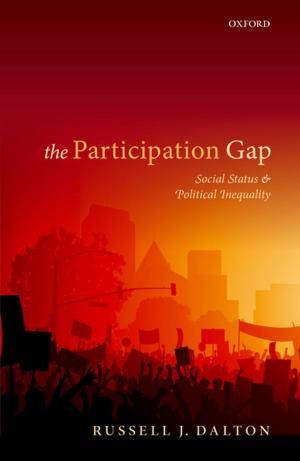A Future for Policing in England and Wales
Nonfiction, Reference & Language, Law, Criminal Procedure, Social & Cultural Studies, Social Science| Author: | Timothy Brain | ISBN: | 9780191507410 |
| Publisher: | OUP Oxford | Publication: | October 17, 2013 |
| Imprint: | OUP Oxford | Language: | English |
| Author: | Timothy Brain |
| ISBN: | 9780191507410 |
| Publisher: | OUP Oxford |
| Publication: | October 17, 2013 |
| Imprint: | OUP Oxford |
| Language: | English |
Encapsulating new policing developments under the Coalition, A Future for Policing in England and Wales examines the major reform proposals and reports brought in since May 2010, including the Winsor Report and the 2010 Comprehensive Spending Review, and analyses what these changes mean for the future of policing in England and Wales. In the 1990s and 2000s the Police Service in England and Wales underwent profound change which saw massive increases in resources accompanied by increased centralism, a more business-like approach, and the proliferation of national objectives, targets and strategic plans. The Coalition Government signalled a radical shift away from that political consensus towards fewer numbers, a significant reduction in resources, decentralisation, and the creation of locally elected crime commissioners. This book argues that, as a consequence of this, British society and politics are entering a difficult and complex future, featuring a return to some aspects the social tension and disorder which characterised the 1970s and 1980s, and that the Police Service is currently ill-structured to adapt to the changes. Drawing on the author's own experience as a chief constable and his continuing experience as a police historian and analyst of contemporary police affairs, A Future for Policing will be of interest to senior police officers and policing academics, as well as those involved in leadership and other personal development programmes. It will also be of interest to policymakers and historians.
Encapsulating new policing developments under the Coalition, A Future for Policing in England and Wales examines the major reform proposals and reports brought in since May 2010, including the Winsor Report and the 2010 Comprehensive Spending Review, and analyses what these changes mean for the future of policing in England and Wales. In the 1990s and 2000s the Police Service in England and Wales underwent profound change which saw massive increases in resources accompanied by increased centralism, a more business-like approach, and the proliferation of national objectives, targets and strategic plans. The Coalition Government signalled a radical shift away from that political consensus towards fewer numbers, a significant reduction in resources, decentralisation, and the creation of locally elected crime commissioners. This book argues that, as a consequence of this, British society and politics are entering a difficult and complex future, featuring a return to some aspects the social tension and disorder which characterised the 1970s and 1980s, and that the Police Service is currently ill-structured to adapt to the changes. Drawing on the author's own experience as a chief constable and his continuing experience as a police historian and analyst of contemporary police affairs, A Future for Policing will be of interest to senior police officers and policing academics, as well as those involved in leadership and other personal development programmes. It will also be of interest to policymakers and historians.















